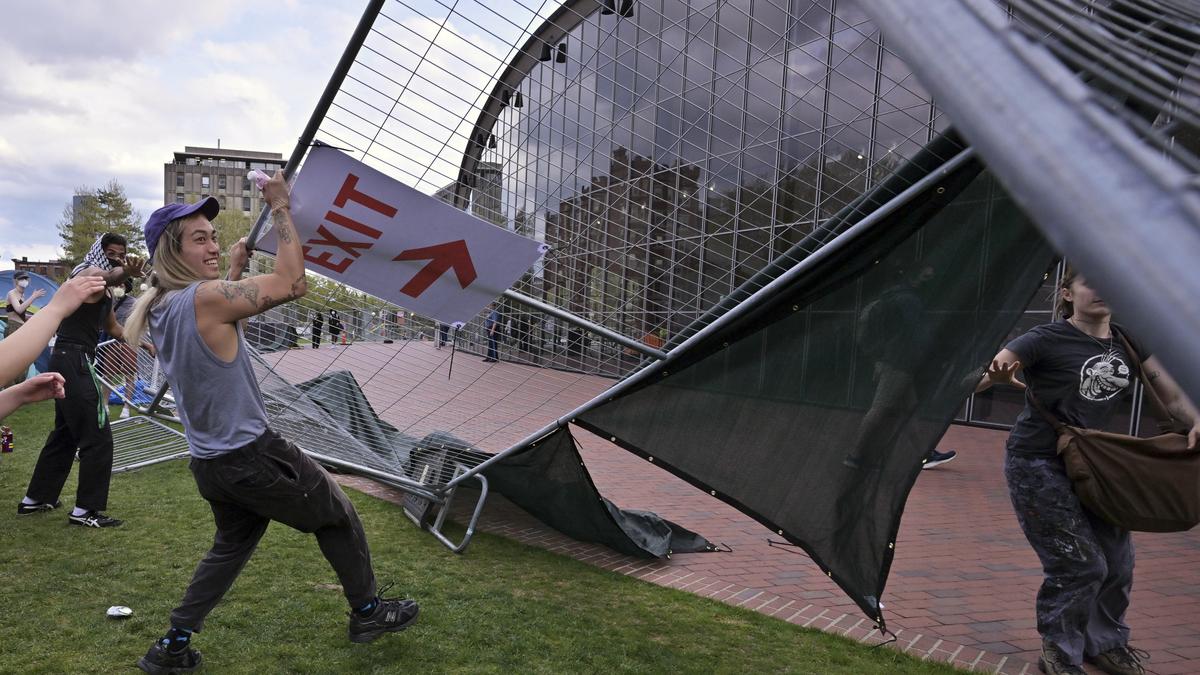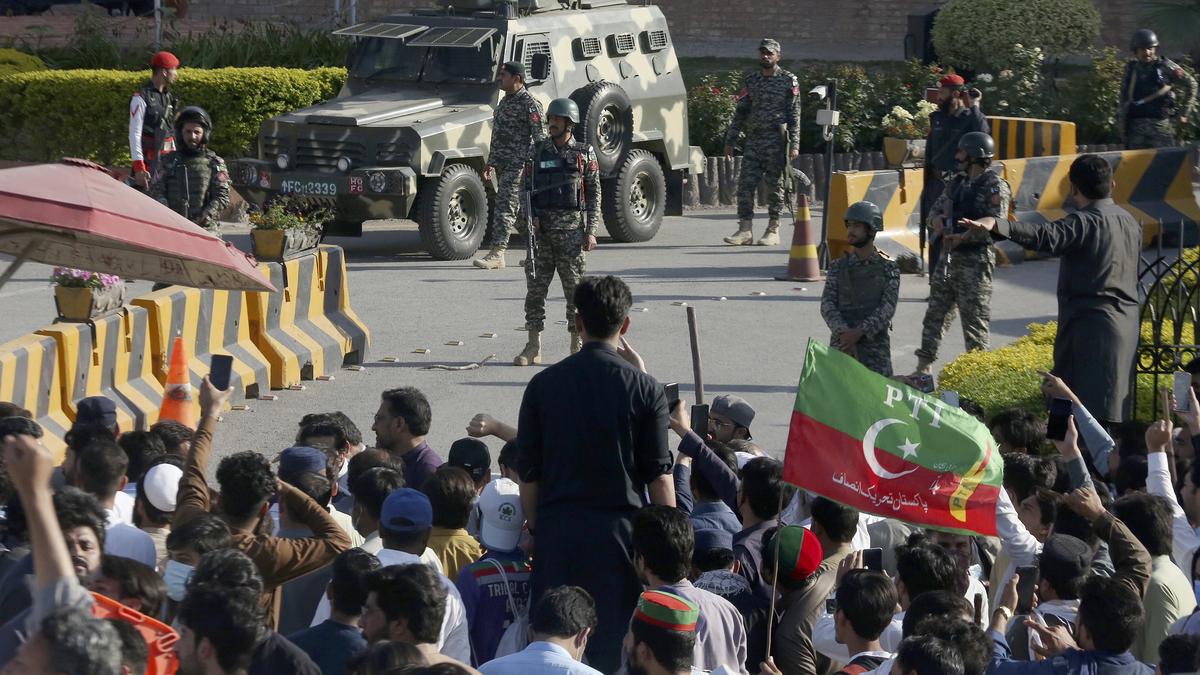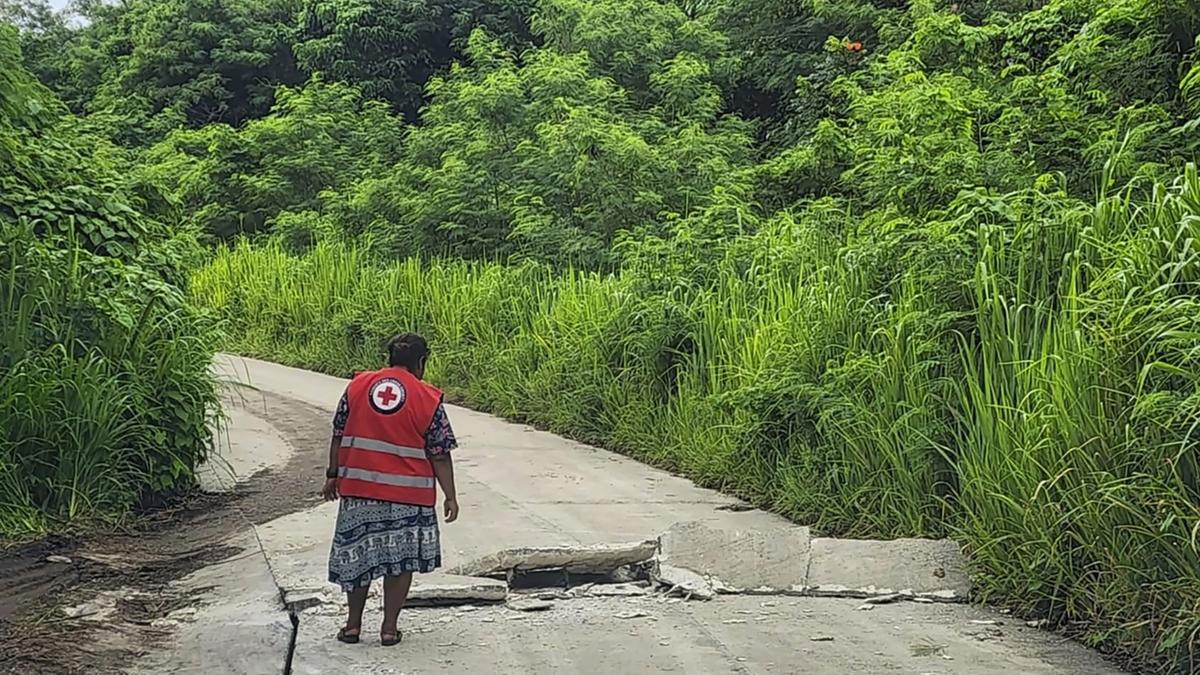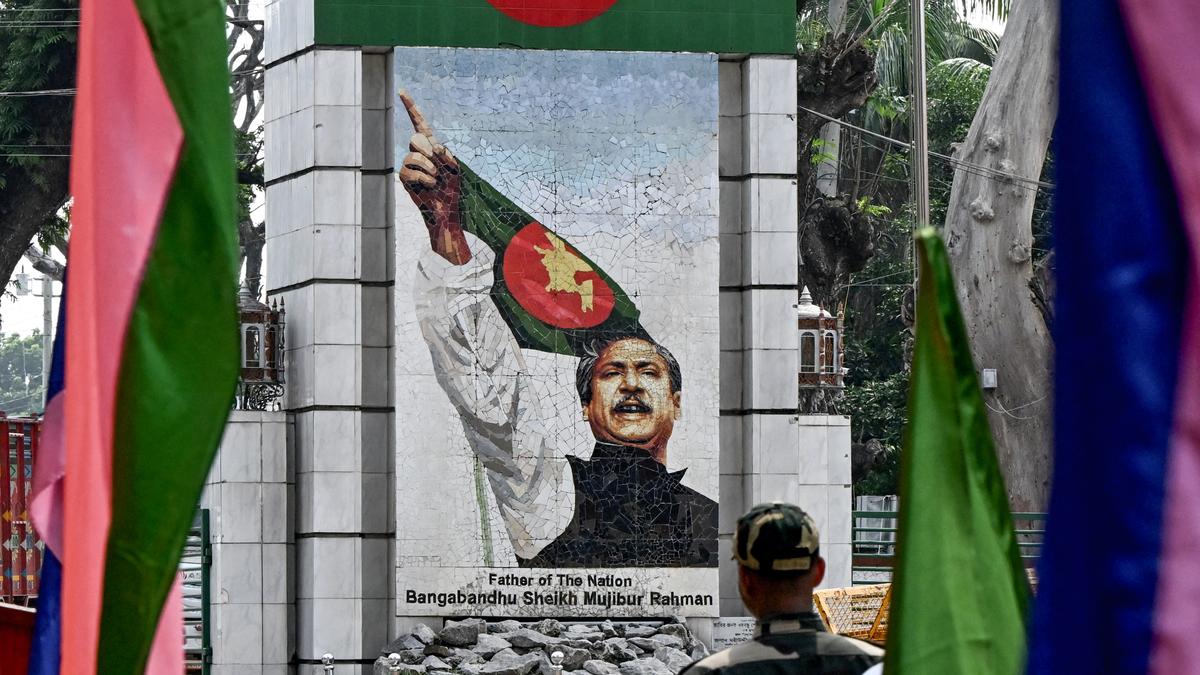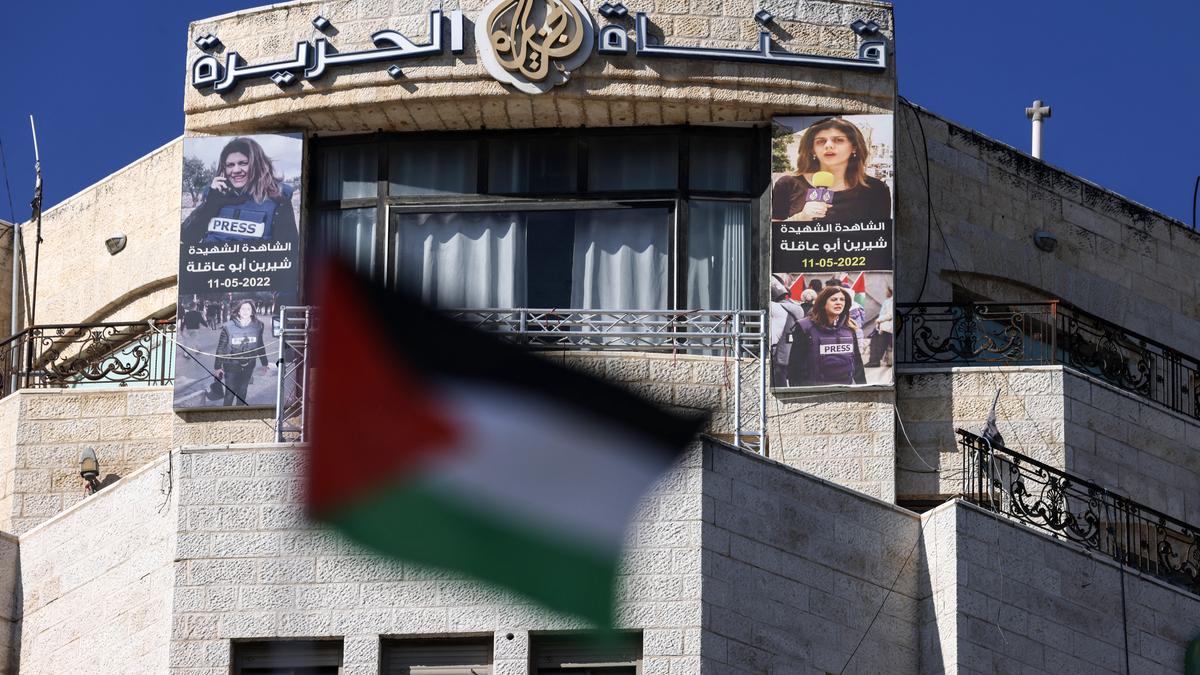A Monday deadline for pro-Palestinian protesters to leave an encampment at Massachusetts Institute of Technology cleared many demonstrators only to have the site retaken while protesters at the Rhode Island School of Design began occupying a building in the ongoing protest movement connected to the Israel-Hamas war.
At MIT, protesters were given an afternoon deadline in which to voluntarily leave the protest site or face suspension. Many left, according to an MIT spokesperson, who said protesters breached fencing after the arrival of demonstrators from outside the university. On Monday night, dozens of protesters remained at the encampment in a calmer atmosphere, listening to speakers and chanting before taking a pizza dinner break.
Sam Ihns, a graduate student at MIT studying mechanical engineering and a member of MIT Jews for a Ceasefire, said the group has been at the encampment for the past two weeks and that they were calling for an end to the killing in Gaza.
“Specifically, our encampment is protesting MIT’s direct research ties to the Israeli Ministry of Defense,” he said.
Earlier in the day Erica Caple James, a professor of medical anthropology and urban studies at MIT, attended the protests as a faculty observer and an adviser to the Alliance of Concerned Faculty.
“My hope is that the day ends without harm befalling anyone, without there being physical violence and hopefully with space to open negotiations again between the administration and students, faculty and staff who are concerned about MIT’s global influence,” she said.
No arrests had been made as of Monday night, according to the MIT spokesperson.
At the Rhode Island School of Design, where students started occupying a building Monday, a spokesperson said the school affirms students’ rights to freedom of speech and peaceful assembly and that they support all members of their community. The RISD president and provost were on site meeting with the demonstrators, the spokesperson said.
Demonstrations at Columbia University, where the protest movement began about three weeks ago, have roiled its campus. Officials on Monday cancelled its large main ceremony, but said students will be able to celebrate at a series of smaller, school-based ceremonies this week and next.
The decision comes as universities around the country wrangle with how to handle commencements for students whose high school graduations were derailed by COVID-19 in 2020. Another campus shaken by protests, Emory University, announced on Monday that it would move its commencement from its Atlanta campus to a suburban arena. Others, including the University of Michigan, Indiana University and Northeastern, have pulled off ceremonies with few disruptions.
Columbia’s decision to cancel its main ceremonies scheduled for May 15 saves its president, Minouche Shafik, from having to deliver a commencement address in the same part of campus where police dismantled a protest encampment last week. The Ivy League school in upper Manhattan said it made the decision after discussions with students.
Columbia had already canceled in-person classes. More than 200 pro-Palestinian demonstrators who had camped out on Columbia’s green or occupied an academic building were arrested in recent weeks.
Similar encampments sprouted up elsewhere as universities struggled with where to draw the line between allowing free expression while maintaining safe and inclusive campuses.
The University of Southern California earlier canceled its main graduation ceremony. Students abandoned their camp at USC on Sunday after being surrounded by police and threatened with arrest.
Other universities have held graduation ceremonies with beefed-up security. The University of Michigan’s ceremony was interrupted by chanting a few times Saturday.
Emory’s ceremonies scheduled for May 13 will be held almost 20 miles (30 kilometers) northeast of the university’s Atlanta campus, President Gregory Fenves said in an open letter.
“Please know that this decision was not taken lightly,” Fenves wrote. “It was made in close consultation with the Emory Police Department, security advisors and other agencies — each of which advised against holding commencement events on our campuses.”
The 16,000-student university is one of many that has seen repeated protests stemming from the conflict that started Oct. 7 when Hamas militants attacked southern Israel, killing about 1,200 people, mostly civilians, and taking roughly 250 hostages. Student protesters are calling on their schools to divest from companies that do business with Israel or otherwise contribute to the war effort.
Vowing to destroy Hamas, Israel launched an offensive in Gaza that has killed more than 34,500 Palestinians, about two-thirds of them women and children, according to the Health Ministry in the Hamas-ruled territory. Israeli strikes have devastated the enclave and displaced most of its inhabitants.
Hamas on Monday announced its acceptance of an Egyptian-Qatari cease-fire proposal, but Israel said the deal did not meet its “core demands” and that it was pushing ahead with an assault on the southern Gaza town of Rafah.
“Cease-fires are temporary,” said Selina Al-Shihabi, a Georgetown University sophomore who was taking part in a protest at George Washington. “There can be a cease-fire, but the U.S. government will continue to arm the Israeli military. We plan to be here until the university divests or until they drag us out of here.”
At the University of California, San Diego, police cleared an encampment and arrested more than 64 people, including 40 students.
The University of California, Los Angeles, moved all classes online for the week due to ongoing disruptions following the dismantling of an encampment last week which resulted in 44 reported arrests.
Chancellor Gene Block said Monday night that UCLA’s newly appointed chief safety officer would lead an investigation to identify and prosecute the “group of instigators” who led a violent attack on pro-Palestinian demonstrators on April 30. The university has asked Los Angeles police, the FBI and the district attorney’s office for assistance, Mr. Block said.
Schools are trying various tactics from appeasement to threats of disciplinary action to get protestors to take down encampments or move to other areas of campus.
The School of the Art Institute of Chicago said in a Facebook post on Sunday that it offered protesters “amnesty from academic sanction and trespassing charges” if they moved and that many protesters voluntarily left.
“Those that remained were arrested,” the school said.
A group of faculty and staff members at University of North Carolina at Chapel Hill asked the administration for amnesty for student protesters who were recently arrested and suspended. UNC Faculty and Staff for Justice in Palestine said in a media advisory that it would deliver a letter on behalf of more than 500 faculty who support the student activists.
Harvard University’s interim president, Alan Garber, warned students that those participating in a pro-Palestinian encampment in Harvard Yard could face “involuntary leave.” That means they would not be allowed on campus, could lose their student housing and may not be able to take exams, Mr. Garber said.


